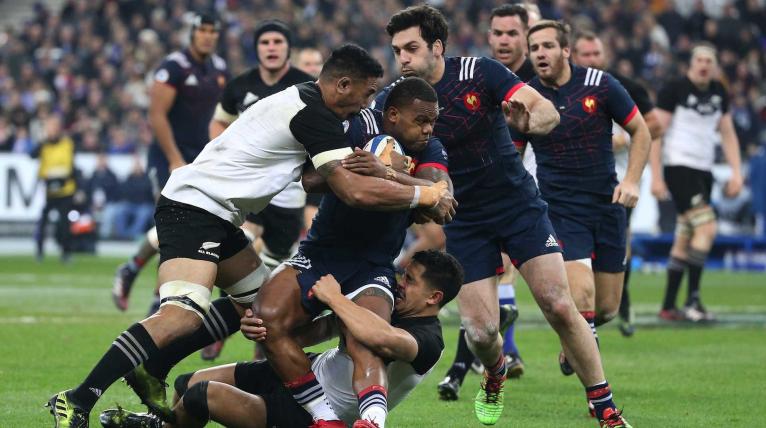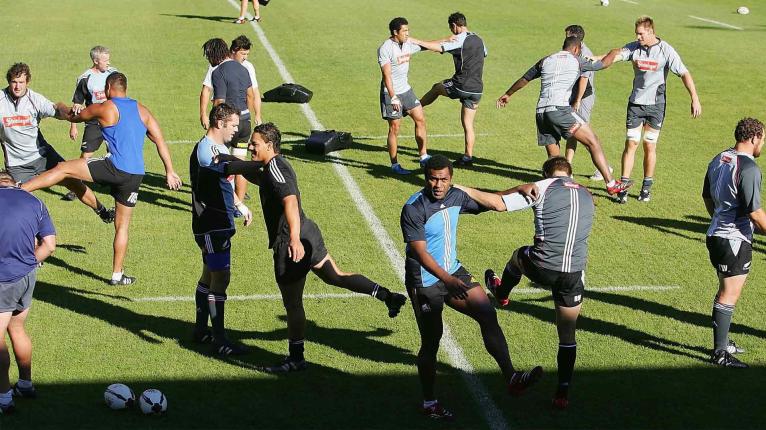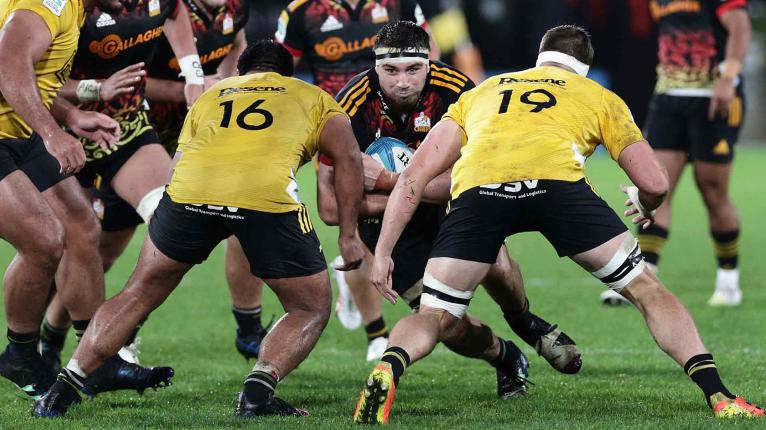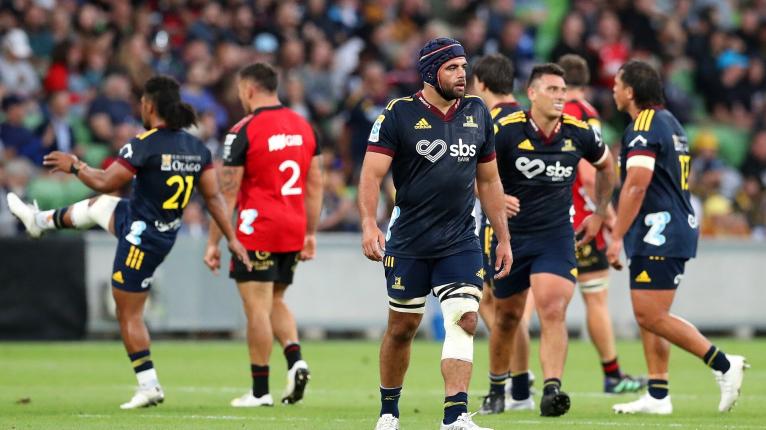For decades, the whole professional rugby fraternity in New Zealand used to look at the club versus country conflict in England and collectively feel relieved that no such battle was raging in their backyard.
New Zealand’s collective contracting model, where the national union owns the clubs and the players, has been expensive to run, but no one would disagree that it has been worth every cent.
Plenty of dissertations have been written trying to get to the nub of the All Blacks’ dominance in the professional age, and while there are multiple factors behind the team’s success, the central contracting model has been a significant contributor.
Having the players owned and managed by one employer has enabled New Zealand’s elite playing base to be carefully managed in terms of workload, injury rehabilitation and career management.
The issue of players being asked to play too much rugby or being under pressure to play when they are carrying an injury is not something that has plagued the game in New Zealand the way it once did in England and other parts of the world in the earlier years of professionalism.

The sense that the athletes are commodities to be used as pawns in a bigger battle between rich club owners and national union administrators has not been evident in New Zealand and the results achieved by the All Blacks in the last 20 years are proof of how well the centralised system has worked.
The All Blacks are the only team to have delivered sustained, excellent results since the game went professional. Their win ratio since 1996 sits at about 80 per cent, but just as importantly they have never, really, fallen into prolonged periods of underperformance or endured a shocking end-of-season tour where the wheels have come flying off because the players are out on their feet and have nothing left to give.
And it’s the fact that the All Blacks have been able to perform as well at the end of each season as they have at the beginning which is the ultimate testament to how well the players have been managed.
The All Blacks numbers are quite staggering when it comes to end-of-season tours. When Graham Henry was coach between 2004 and 2011, the All Blacks – excluding the 2007 World Cup – didn’t lose a test in Europe.
When Steve Hansen took over, the All Blacks lost to England in 2012 and Ireland in 2018, so in 15 years the team lost just three times in Europe in 42 tests, and once to Ireland in 2016 when they played in Chicago.
There has been, and continues to be, considerable conflict between Super Rugby clubs and New Zealand Rugby over player workload.
But while this central management system has benefitted the All Blacks, it’s not true to say New Zealand has never had the same conflict club versus country as England.
There has been, and continues to be, considerable conflict between Super Rugby clubs and New Zealand Rugby over player workload.
It’s just that it has not been so visible as everyone is, contractually at least, on the same side and hence the clubs don’t have the freedom or licence to be openly critical.
But the conflict is there and it has significantly impacted New Zealand’s clubs and it has without doubt been a huge factor in reducing public interest in Super Rugby.
The origins of the conflict trace back to 2007, when Henry, fearful that with Super Rugby kicking off in late January that year, there was no way his top players would still be firing by September/October.
On the basis that winning a World Cup was deemed imperative to NZR’s ambitions for the All Blacks, Henry was allowed to hand-pick 22 players who were granted permission to miss the first seven rounds of Super Rugby.

It destroyed the credibility of that year’s competition, but it also set a damaging precedent that confirmed what many suspected, which was that NZR would always prioritise the needs of the All Blacks ahead of Super Rugby.
And in time, what we have seen is Henry’s extreme policy has effectively softened but still consistently implemented.
For almost the last decade now, between 30-40 players have to abide by strict, NZR-imposed protocols to restrict and reduce their game time in Super Rugby.
The policies have varied over the years, but largely have been built around a graduated return to play where the players’ minutes do not exceed 180 in the first three games of the season and that they don’t play more than five consecutive matches.
When Super Rugby featured 18 teams from five countries between 2016 and 2017, the policies were justifiable given the length of the season and the volume of travel involved.
All five teams had to pre-submit a workload plan for their All Blacks players before the [2023] season began.
But since 2022, Super Rugby has been a trans-Tasman/Pacific competition with just 12 teams and the clubs have struggled to accept NZR’s insistence on heavily managing the workloads of the best players.
This year, the imposition has been one of the hot topics as how and when players are rested became a strategic question for coaches and one that upset fans.
All five teams had to pre-submit a workload plan for their All Blacks players before the season began – one where none would play more than five weeks on the trot and missed at least two games before the play-offs.
Coaches had to work out how to approach these enforced demands, with most teams choosing to rest the bulk of their All Blacks at the same time and did so against opposition they felt they could beat without their star players.
But we have also saw the Hurricanes rest Ardie Savea, Tyrel Lomax and Jordie Barrett for a critical derby clash against the Chiefs – a decision that sparked intense debate about NZR interference in the competition.
The Hurricanes lost to the Chiefs and in doing so, slipped to fifth on the table. However, coach Jason Holland justified the decision by explaining he was working to a plan designed to win the title.

And in doing so, the inference was perhaps that he didn’t think the Hurricanes would be able to beat the Chiefs in Hamilton even with a full contingent of All Blacks and so was perhaps targeting the next games against the Blues and Crusaders.
“We don’t only need to think around our All Blacks; we think around the whole squad and how the whole squad is going, and getting a good plan for everybody throughout our squad is massive,” he said.
“It’s a good run in now, isn’t it? We’ve got two derbies to go, possibly another three to win the whole thing. That’s all we’re thinking – ‘How do we win the championship?’ I think we’re in pretty good shape to have a good crack at it.”
In a way it just about proved itself as a strategically brilliant plan by Holland. The Hurricanes lost to the Blues but beat the Crusaders in their final round-robin game.
The victory didn’t change their position on the table, but it undeniably gave them a huge confidence boost going into this week’s quarterfinal against the Brumbies.
The Chiefs were able to keep picking their bustling and quite brilliant hooker Samisoni Taukei’aho for most of the campaign, while the Highlanders were told their inspirational captain Billy Harmon would be subject to the rest policy.
The bigger point, however, can’t be missed in all this – which is that Super Rugby coaches shouldn’t be having to work out how to incorporate someone else’s workload management strategy into their campaign.
It would surely have been better for the competition had Savea, Lomax and Barrett featured in all three of the Hurricanes’ last three games, rather than the coach having to randomly determine which of the two his superstars could play to appease what at times feels like an unscientific rest policy.
The science behind this plan seems sketchy at best as some teams were able to negotiate exemptions for certain players at critical times.
Most notably, the Chiefs were able to keep picking their bustling and quite brilliant hooker Samisoni Taukei’aho for most of the campaign, while the Highlanders were told their inspirational captain Billy Harmon would be subject to the rest policy.
The hard part for the Highlanders to accept was that Harmon had been called up as a replacement by the All Blacks in November last year after captain Sam Cane broke his cheek, but he didn’t play a single minute for the national team.

He was still captured by the blanket policy, and he wasn’t happy about it. “I understand the reasoning behind it, but for me I think it was three games in and I was still trying to find rhythm,” he said.
“So, I understand all the meaning behind it, but we all just want to play footy, and that’s what the crowd wants as well. It’s a tough, tough question.”
The Highlanders missed the playoffs by a single point and while it would be impossible to prove, you have to wonder whether they would have collected the point somewhere along the way had they had full access to Harmon.
The biggest question of all, however, is whether this policy will persist next year when current Crusaders coach Scott Robertson takes over the All Blacks.
He, as a long-serving Super Rugby coach, knows the frustrations and the impact the policy has had.
He has seen how the policy has been a factor in reducing attendances and driving negative headlines and how in 2023, enforced player management became an actual strategy for coaches during the round-robin games (the rest policy is not applicable to the playoffs).
But he’ll also be the All Blacks coach, desperate to win Tests with fresh and hungry players. A fascinating decision awaits, but it seems likely that New Zealand’s silent war between club and country will continue for some time yet.



I would be interested to see data on how limiting player workload through rest weeks in SR has effected their injury rates. It makes a lot of sense on paper, especially when it comes to reducing head knocks, but anecdotally I think NZ rugby has been absolutely plagued by injury since around 2016/17, especially in the backs.
In Ireland their best team rested their best players for the club semi final. Nobody moaned because they can see the bigger picture. We rest players for a couple of regular season games and the sky's falling down.
We need to get real. Playing too many weeks in a row is what leads to injuries for the Super finals and the World Cup. If a kiwi team isn't good enough to make the top 8 they need to look in the mirror, not look for excuses.
The All Blacks and their continued success basically fund the entire game here. In countries with much bigger economies and larger rugby audiences they can push players more knowing that irrespective of rep or club teams success the size of their economy means that they will always get decent crowd buy in and hides the fact that it is the game itself that is deterring crowd attendance here in NZ. It seems that NZRU have made the decision that the All Blacks, rightly, must be kept in the best position to win to secure the future of the game here possibly, as some have opinioned, at the expense of super rugby. In my view they have to do this because they know that the local game cannot financially stand on its own and frankly as a live spectacle more often than not the games are a done deal before kick off. There are too many rules and too many opportunities for referees and TMO s to stop the game. Too often live crowds are sitting watching nothing. Who wants to watch hookers scoring more tries than wingers? Until the game is, for example, rid of legalised obstruction at the rolling maul which seems to be the aim for every pro team and the game is played wider with no fear of playing with the ball in your half in case the ref spots some minor technical indiscretion, teams will continue to scrum for a penalty, kick for the corner and rolling maul it. Who wants to watch that? That is why no one is going to games - because the viewing experience is rubbish irrespective of whether a couple of All Blacks are playing or not. The NZRU need to get their big boy pants on and do something about the rules.
The fact that the Highlanders had to rest Billy Harmon was criminal and Aaron Smtith having multiple rest weeks even though he missed the first 2 games and had berievement leave for his father's passing is just stupiud from NZR.
The truly absurd aspect of the "rests" came with players like big Chief ALB injured for most of the season, requiring as much game time as possible once they returned yet still being required to stand down for a rest!!!!!
Is it true that rest weeks are written into the collective agreement with the players collective?
It is around 2007 that the disenchantment of the public with how the game is run started. Meaning has importance. Henry's dodgy sport science signalled that the domestic game is not important which the public understood and decided to invest their time elsewhere.
This model worked well for a while but the long term results are now becoming evident. Look at the stadiums, TV ratings. Super rugby is a dead duck. 8k people turned up to a game in Auckland recently. I doubt there were anymore watching on TV
Why should I as a fan, care about a competition that clearly the national union see only as a feeder into the all blacks
Super rugby needs to be separated from the NZRU immedialty, or rugby will continue to die in NZ